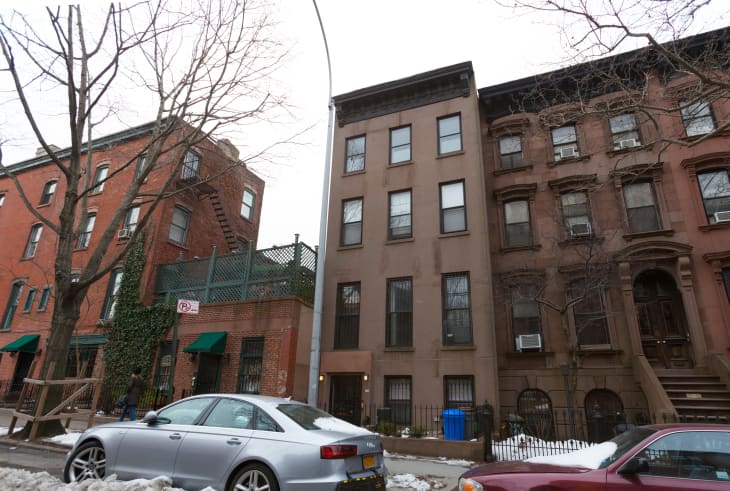7 Things Everyone Should Know About Their Landlord

Oh the ‘L’ word: For renters, a landlord can be (hopefully) an awesome resource or, in other situations, a thorn in your side. Either way, when you move into a new place, you’re going to have to deal with your landlord at some point.
“When you move into a new rental, you’re also embarking on a new business relationship with the apartment’s owner,” says Gary Malin, president of Citi Habitats in New York City. “As is the case with any relationship, it’s important to ask some important questions upfront to see if you’re a match.”
Here’s how to navigate this tricky relationship, what you should know about your landlord, and why all of this matters:
1. Consider this a two-way street
A landlord/tenant relationship is actually a two-way street—each party should have their needs met.
“Landlords are always concerned about whether their units will be treated respectfully and if rents will paid on time each month,” says Jonathan Faccone, founder of Halo Homebuyers, a real estate developer in Bridgewater, New Jersey. “Tenants, on the other hand, generally want to be treated professionally and have repairs handled in a timely fashion.”
2. Learn how many properties your landlord is juggling
It’s important to know how long your landlord has been in the business and how many properties he or she owns.
“When looking for an apartment, you want to know if you’re going to be dealing with a ‘mom-and-pop’ operation or a large corporation,” Malin says. “For owners of multiple buildings, it’s valuable to know their policy on moving from apartment to apartment or building to building within their portfolio. For example, if your housing needs change, will there be a penalty for breaking your lease to upgrade to another unit they own?”
3. Know your landlord’s communication style
It is extremely important as a tenant to learn your landlord’s communication style and professionalism before any paperwork is signed.
“The best landlords treat their job as a business and therefore have strong systems and processes in place that cover everything from upfront expectations to communication standards,” says Faccone. “They should have a process that covers what to do in case of repairs and how to get in touch with the correct people if there is an issue.”
Knowing all this upfront will help you understand if your landlord values providing quality customer service to his tenants.
4. You can learn a lot from asking other tenants
If you still have more questions about a potential landlord, don’t hesitate to speak to other tenants.
“Ask how happy they are with the landlord,” suggests Karen Kostiw, a real estate agent at Warburg Realty in New York. “You can find out how the landlord reacts to requests and if he or she addresses issues quickly and in a professional matter.”
5. When in doubt, research
Though you should check out how a landlord treats their current clients, you also want to find out if there have been any legal violations or complaints about the landlord. Google your landlord and property manager’s name to see if anything fishy surfaces.
“You want to know if your apartment is in the process of being foreclosed, if there are any liens, outstanding taxes, repairs, infestations or any other complaints that have been made,” Kostiw says. “Check with the Better Business Bureau, look for online testimonials, and join in on group chats to find out anything you need to know.”
6. Keep your eyes open about the building’s maintenance
If your research has checked out, pay close attention to the hallways, lobby, and basement to get an indication of how much the landlord cares about the property.
“A physical review of the premises may enable you to detect issues such as water damage, insect and rodent, or other pest infestations,” Kostiw says.
7. Make sure you’re comfortable with payment options
Last but not least, make sure you’re comfortable with how you will ultimately pay rent to your landlord.
“Some landlords are more flexible than others,” Malin says. “It’s imperative to know what your rent payment options are–do they accept bank transfers, payment apps, or credit cards? And are there any fees involved? Do they accept lease guarantee services in lieu of traditional guarantors?”
Knowing all of this ahead of time will make your time with your landlord as pleasant as possible—throughout the length of your lease. Maybe you’ll even want to renew, too.